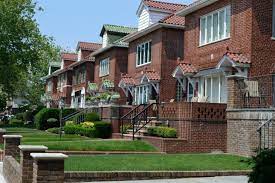Although it may seem cheaper to transform an old property in a residential neighborhood into a dental office, there are some pricey considerations to consider before signing your purchase agreement.
Converting a residential property to commercial use of a medicare dentist in Tampa is a complicated process that should be appropriately investigated and undertaken with prudence.
We’ve outlined a few issues that may make you reconsider if converting a house is the best option for your business.
Maintenance Considerations
An older property with more fascinating or elaborate characteristics sometimes has the desired look with personality; yet, older homes often have many maintenance difficulties as they age.
A substantial renovation of the home to overcome the age and need for upkeep might be as expensive as, if not more costly than, purchasing a commercial property or structure.
Structural challenges of relocating walls and pipes to enable treatment and cleaning rooms are other considerations when remodeling a home.
Adequate spacing
Your employees will be more efficient if you have enough space that was built for patient flow. There are programs available that make purchasing commercial premises or even starting your own business more affordable.
For instance, The Small Business Association’s 504 Loan program is ideal for dentists in Michigan. Qualified company owners may finance up to 90% of their building and construction requirements via this project.
Dentists are also an excellent match for a leaseback project, in which a developer constructs an office according to the doctor’s needs and then rents it back to the doctor.
Zoning
Don’t forget to check if you need to rezone the property for commercial use before buying it. This implies you’ll have to look for documentation, meetings, and approval outside of your usual work hours.
Alternatively, there is the added cost of employing an expert to handle the rezoning. This activity would save time and money if you did it in a business facility.
Architects would require the rezoning of the property that wasn’t previously designated for dental office use, which might add several months to your project timeline.
It’s a good idea to check with the city’s zoning department to see whether altering the property’s zoning classification will be approved; if not, look for another location.
Residential zoning rules vary significantly from commercial zoning ordinances, which may include, but are not limited to, expanded fences, parking, fences, landscaping, water drainage, lighting, and signage.
What Can I Do?
Make sure it’s accessible.
Depending on whether the ground-level floor assembly is composed of slab-on-grade or traditional frame, the latter may or may not need accessibility ramps, while the former must.
The Americans with Disabilities Act has regulations that must be followed, including having minimum corridors and doors and obtaining floor clearance of both sides’ door latches.
Besides that, you’re obliged to provide accessible public restrooms and implement the necessary minimum to maximum work counter heights.
Apply for permits
It’s pretty uncommon for a property to be used as a dental business despite not having the appropriate D1 planning permit. Despite the obvious risks, it is nevertheless necessary.
These premises are known as “long users.” If they have been used as a dental office for more than ten years without opposition from the local authorities, there will be no enforcement for the absence of a permit, and service will continue as before.
However, if a dentist wants to buy a ‘long user’ property, they should be aware of this status.
It’s possible that the property has been used as a dental office without trouble for eight years, and it’s when it’s sold, this information is discovered, causing major problems.
As a result, a buyer’s lawyer would want to get a written statement stating that no objections to the property’s usage have been raised.
They’d like this to be backed up by an insurance policy that protects the buyer against future enforcement action in an ideal world.
The insurance coverage would have to be purchased as a one-time payment upon completion of the transaction in this situation.
Keep watch of the costs.
It is realistically possible to convert a property into a dentist’s office. However, each property should be scrutinized and examined by today’s Guidelines, Accessibility Standards, Building Codes, and expenses for all of the reasons listed above, rather than being compared to someone else’s conversion project from a few years ago.
Compared to building a new building from the ground up, a residential-to-commercial conversion project is often done to preserve its architecture if it is located in a Historic District. But it can involve many costly upgrades or replacements, and when all is said and done, it can cost much, if not more.
Even if you may acquire the property for substantially less than market value, the expenditures of retrofitting the land and building, particularly for start-up businesses, might be a greater financial burden to shoulder.
A feasibility study by an architect or engineers should be done as part of the due diligence process to establish the viability of the property and if it will be the correct fit for the company strategy.
Outlook
Check to see whether your freshly converted area can meet your workers’ daily requirements. Check whether the house is adequately ventilated and if the heating and cooling system can handle the extra load.
The perfect office environment will encourage creativity and cooperation and be a pleasant location for your staff to work each day. If you can afford it, make the required changes and modifications to provide your patients with the greatest dental care!
Follow Home Inside for more!
